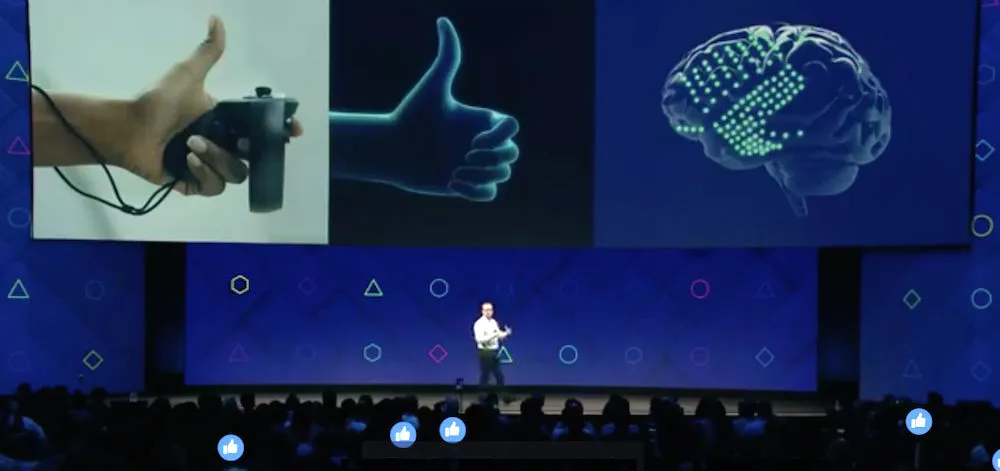It’s day two of Facebook’s annual developer conference in San Jose. As part of this morning’s keynote address, Facebook CTO, Mike Schroepfer took the stage to provide an overture for the discussions coming later from company experts.
On the subject of virtual reality, Schroepfer began by simply recapping the advances Facebook’s Oculus team and its Samsung partnership have wrought to date. He closed his introduction, however, by teasing a new form of VR input control that uses direct brain inputs rather than a physical controller.
Schroepfer explained that Oculus Touch is an amazing piece of hardware, but asked the crowd to consider a world where you “skip” the controller all together and interact with virtual reality using nothing but your mind.
“Now stay with me. I know this is out here,” Schroepfer said to the crowd, adding that Regina Dugan would be on stage soon to explain this next-level concept in greater detail. Dugan leads Facebook’s mysterious research and development team known as Building 8. She previously led similar, bleeding edge teams at Google and DARPA.
With a resume like that, Dugan is one of the few people capable of making something like a direct brain/tech interface possible. We will be updating this article further once she begins her remarks.
Update: Dugan has just finished speaking and her talk shed some light onto the brain-powered controls Facebook is cooking up.
According to Dugan, her team at Building 8 is comprised of “more than 60” engineers, scientists, physicists and leaders in neural prosthetics.
Their combined goal is to “create a system capable of typing 100 words-per-minute straight from your brain.”
This is an important first step in Building 8’s mission to create technology that “acknowledges that humans are both mind and body,” and will theoretically lead to new, more semantic forms of direct-device interaction.
Dugan and her team theorize that speech is a form of “compression” on the unbridled thought power of the human mind. Their goal is to create systems that bypass any need for simplification and allow our brains to express themselves as naturally as possible.
Possible outcomes of this could include language-free communication based purely on intent, or the ability to utilize technology without breaking away from social interactions. There could also be benefits for those with disabilities.
Dugan’s proposed solution wold not require any sort of surgery to implant invasive electrodes. Instead, she proposes using a series of highly advanced, optical-imaging sensors. These sensors would need to be capable of seeing through the hair, skin and skull of a human head and capturing hundreds of readings every second. Dugan says that this technology does not currently exists and still needs to be invented.
“These things are still a few years away,” Dugan said but encouraged the crowd to stay creative and stay tuned for more updates from Facebook’s most secretive subdivision.


























